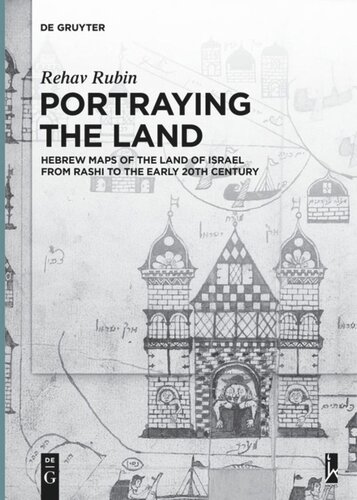

Most ebook files are in PDF format, so you can easily read them using various software such as Foxit Reader or directly on the Google Chrome browser.
Some ebook files are released by publishers in other formats such as .awz, .mobi, .epub, .fb2, etc. You may need to install specific software to read these formats on mobile/PC, such as Calibre.
Please read the tutorial at this link: https://ebookbell.com/faq
We offer FREE conversion to the popular formats you request; however, this may take some time. Therefore, right after payment, please email us, and we will try to provide the service as quickly as possible.
For some exceptional file formats or broken links (if any), please refrain from opening any disputes. Instead, email us first, and we will try to assist within a maximum of 6 hours.
EbookBell Team

0.0
0 reviewsCo-publication with Magnes Press
The book presents and discusses a large corpus of Jewish maps of the Holy Land that were drawn by Jewish scholars from the 11th to the 20th century, and thus fills a significant lacuna both in the history of cartography and in Jewish studies.
The maps depict the biblical borders of the Holy Land, the allotments of the tribes, and the forty years of wanderings in the desert. Most of these maps are in Hebrew although there are several in Yiddish, Ladino and in European languages.
The book focuses on four aspects: it presents an up-to-date corpus of known maps of various types and genres; it suggests a classification of these maps according to their source, shape and content; it presents and analyses the main topics that were depicted in the maps; and it puts the maps in their historical and cultural contexts, both within the Jewish world and the sphere of European cartography of their time.
The book is an innovative contribution to the fields of history of cartography and Jewish studies. It is written for both professional readers and the general public. The Hebrew edition (2014), won the Izhak Ben-Zvi Prize.